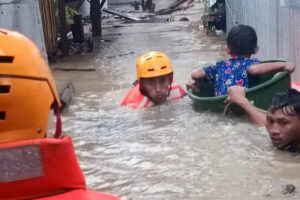ASIA-PACIFIC economies must bolster the use of digital technology to support economic growth while addressing the climate crisis, the Philippine representative to the United Nations Economic and Social Commission for Asia and the Pacific (ESCAP) said.
“The true promise of digital transformation lies in its potential to address the most pressing challenges of our times, such as climate change, inequality, and poverty,” Millicent Cruz-Paredes, ambassador of the Philippines to Thailand and Philippine representative to ESCAP, told a forum on Tuesday.
“Our efforts must focus on building a robust digital infrastructure that supports the demands of a growing digital economy while being mindful of the environmental impact.”
She cited the need for governments to deploy digital solutions to the problem of climate and sustainability.
“Digital solutions must be seamlessly integrated into our strategies for climate resilience and sustainability, ensuring that they contribute to reducing carbon emissions and protecting our most vulnerable communities from the effects of climate change,” she said.
Businesses should also be encouraged to promote sustainable practices and adopt green technology to support growth and environmental protection, Ms. Cruz-Paredes said.
The region must focus on enhancing digital skills to ensure inclusive digitalization, she added.
The Asia-Pacific remains one of the most vulnerable regions to climate disasters, with average annual losses estimated at $1 trillion, according to ESCAP data.
The region is also home to both large- and small-scale emitters, with the latter being the most exposed to climate catastrophes.
In its latest Asia-Pacific Digital Transformation Report, ESCAP noted the correlation between a country’s digital transformation and its energy transition.
“Notably, digitalization is enabling all infrastructures to become steadily smarter, enhancing efficiencies in energy consumption and supply and facilitating the integration of renewables throughout the lifecycle of infrastructure from the design, construction, operation and management stages to reusing infrastructure waste,” ESCAP Executive Secretary Armida Salsiah Alisjahbana said in the report. — Beatriz Marie D. Cruz
